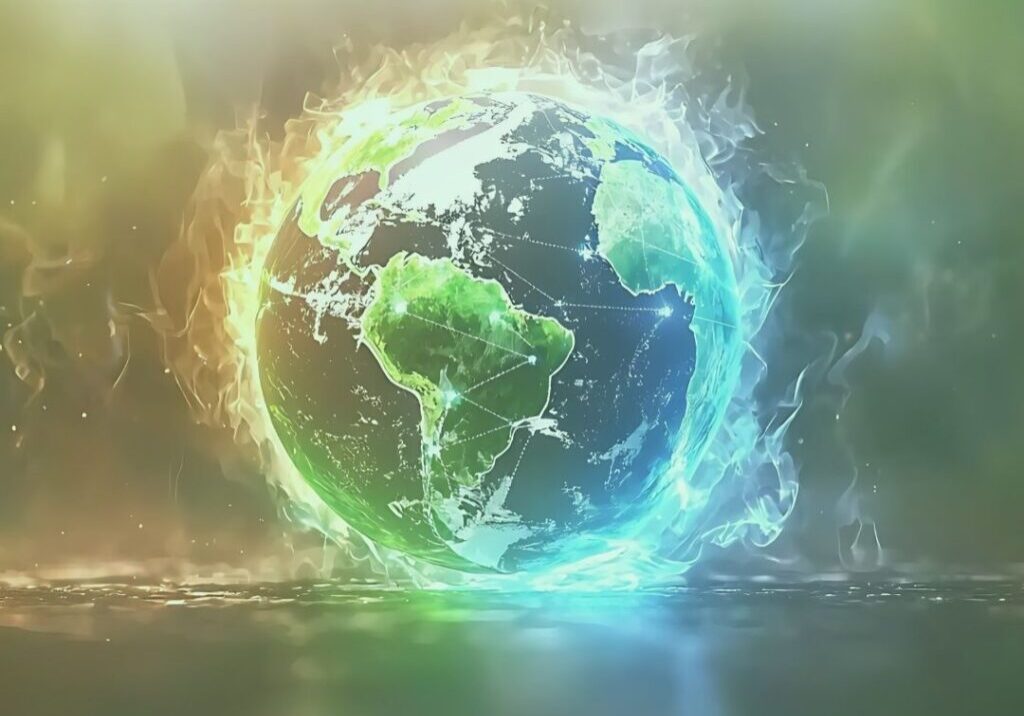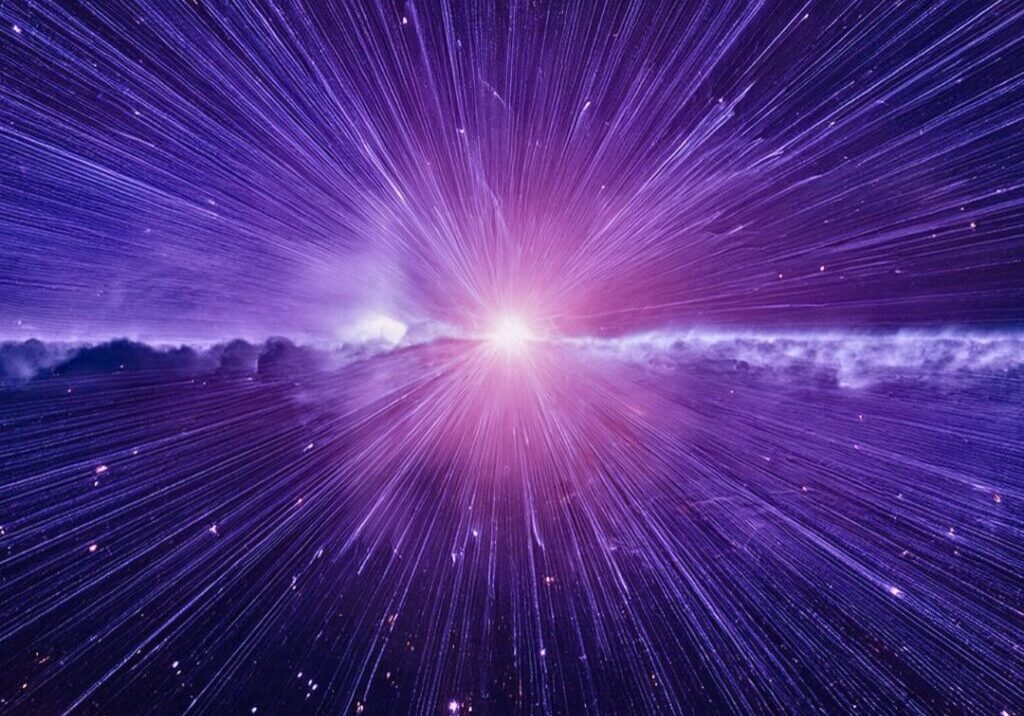The Unemployed Trinity and a Fragile Earth: Refocusing the Christian God
The Christian understanding of God is upside down. For some odd reason, we emphasize a God of power and might when the God of Jesus Christ was hidden and humble. Christians profess belief in the consubstantiality of Father and Son, but Jesus experienced a deep parental love at the heart of his life, by which he called God “Abba.” Jesus was Jewish and died as a Jew. Christians, however, have distinguished themselves from Jews by making claims of knowing the one true God and being saved, in such a way that they have implicitly turned Jesus into a Christian. The Christian God was co-opted by the quest for political power in the Early Church and turned into a philosophical argument by later generations. I do not think Jesus would recognize the Christian God today.
In my last blog, I wrote about Jesus as a mutation, based on the insights of New Testament scholar Larry Hurtado. Jesus showed a new type of religious consciousness by which he experienced the God of Abraham and Moses as the deep personal Thou of his own life. His felt unity with God was what we might call a breakthrough in consciousness. The Hebrew God was known by Jesus as a personal God, a God deeply present within him, empowering him to stretch the boundaries of the world into an inclusive community and shared life. In Jesus, the God of heaven became the God of earth; the God of power became the servant; the God who parted the seas in two and provided manna in the desert was now felt by one who was so filled with the Spirit of life that he named the new temple of worship as the human person. Something decisively new broke through the life of Jesus, and the disciples experienced this newness as a new presence of God. The God who created the heavens and the earth was no longer above; now God was within, actively alive and doing new things.
Not until the resurrection do we begin to get a glimpse into this new reality of God. Jesus, murdered on a cross, was buried in a tomb and raised to new life. The story is so incredible that no Jew would dare to concoct such a story, according to N.T. Wright, but more so, the disciples experienced a new presence of Jesus in their midst, and they were on fire with the good news that Christ had been raised from the dead. Something took place in the disciples just as it had taken place in Jesus; they too experienced a breakthrough in consciousness. Hence, the seeds of the Christian God were planted in a mutation of consciousness and the immanent experience of God. The God of the Old Testament was now experienced not only as the power of creaturely life but more so, as the power of personhood; not only a God who could part the seas but one who seemed to be completely self-giving in love. Christianity marked a disruptive God-shift.
The early Church tried to articulate this God-shift by focusing on the experience of Jesus, who called God “Abba” or “Father,” and who sent the Spirit of life into the world. The early Church recognized that the God of Jesus Christ was radically new, not a singular divine power but a Trinity. Theologians, such as Irenaeus of Lyons, spoke of the Son and Spirit as the two hands of God, a power of life sharing divine life with the world in a deep personal way, the way of the Son, and in an energetic way, the way of the Spirit. The glory of God, Irenaeus wrote, is the human person fully alive. While the Trinity marked the religious breakthrough in God consciousness experienced by Jesus, the early Church, beginning with the Nicene Council in 325 AD, became preoccupied with the question of whether or not Jesus was truly God. Hence the locus of attention shifted from the personal experience of God to philosophical speculations on substance and nature; from concrete engagement to abstract formulas.
Once the Christian God was merged with Greek philosophy, the originality of the Christian mutation was lost. We begin to see a theological distortion from Augustine onwards, insofar as the Trinity no longer reflects the original experience of Jesus nor the relational Hebrew God. Augustine was a Neoplatonist and adopted the exitus-reditus scheme of the pagan philosopher, Plotinus. Essentially everything flows from God and everything returns to God; God is essentially the transcendent One. For Augustine, the mark of the Trinity was the unity of divine essence. He distinguished between God’s inner life and God’s work in creation.
This distinction was affirmed by Thomas Aquinas, who spoke of the One God (De Deo uno) and the Trinity (De Deo trino): God is one essence existing as three persons. Both Augustine and Thomas identified the essential Trinity as marked by relations, processions, and missions. They described God’s incomprehensible essence as simple, perfect, immutable, omnipotent, and ubiquitous. God is pure essence. Moreover, they agreed that the Holy Spirit, while recognized as a divine person, is the bond or nexus between the Father and the Son, so that the Spirit is dependent on the relationship between the first two persons of the Trinity. Thomas Aquinas claimed that God has no real relationship with God’s creatures, only a logical relationship. Simply put, since God is Being itself, all creaturely life participates in God, but God has no real relationship with creatures. God creates out of God’s own internal freedom and desire to create. God loves Godself and then everything else. In short, God does not require the world to be God.
The Franciscan theologian, Bonaventure, a contemporary of Thomas, distinguished his theology by stating that God is Trinity; there is no divine essence apart from Trinity. What God is in Godself is what God is for us. Given that reality at its deepest levels is a dynamic diffusion of divine love, Bonaventure saw creation not as an anomaly in light of an inward-looking deity but a limited actualization of the infinite and dynamic life that marks the divine order.
In the twentieth century, German theologian Karl Rahner used Bonaventure’s insights to develop an understanding of the Christian God for the modern world; he recognized that the Trinity had become irrelevant. He wrote: “Should the doctrine of the Trinity have to be dropped as false, the major part of religious literature could well remain virtually unchanged.” Rahner tried to reset the Christian God by formulating an axiom: “The immanent Trinity is the economic Trinity, and the economic Trinity is the immanent Trinity.” That is, the inner life of God is the outer life of God and vice versa, so that revelation is the experienced self-communication of God in history. God could not communicate Godself in history if God was not, by nature, self-communicative. In this respect, the life of God does not belong to God alone; it is our life as well.
Teilhard de Chardin was familiar with scholastic theology but saw that evolution evokes a new theology, one much closer to the original Christian experience of God, a felt presence, a power of love. Jesus called this presence “Abba”; Teilhard called this presence “Omega,” not a God draping the world in power but an energetic presence of love immanent to the world’s becoming. Teilhard recognized that something is taking shape in evolution, a wholeness rising up through intensified relationships and increased consciousness. This led him to posit that God is not the starting point for creation but a power of evolution, both within and ahead. The name “God” symbolizes wholeness and unity of life and emerges with the development of the human person and self-reflection. Teilhard wrote: “The birth and progress of the idea of God on earth are intimately bound up with the phenomenon of hominization” (Human Energy, 43). The idea of God and hence belief in God is not a given from the start but emerges in evolution. The purpose of religion, Teilhard writes, is “to sustain and spur on the progress of life” (Human Energy, 44). The locus or starting point for religion is the experience of God, that is, the experience of wholeness, unity, beauty, goodness, and truth. It begins within, on the level of the psyche and experience, and emerges without, in co-creating the world.
Teilhard’s paradigm is based on the complementary relationship of God and world. There is no inner life of God turned outward; there is no essential Trinity. Rather, God is the power of life within the elements of unfolding life and emerges in human thought and action. The Trinity describes the self-involved God of evolution; an incomprehensible wellspring of love, the expression of the particularity of love, and the breadth of life loved into more being. The Trinity is not about God; it is about God in relation to persons and the power of love that unites persons into greater unity and freedom. Hence, we can say the Trinity is the evolving reality of personhood which begins with the personal experience of love and faith in that love, the expression of that love, and the energy of love to go forth and actualize love through shared life.
Locating the Trinity in the inner life of God, as if God is like a divine Rubik’s cube, is the basis of atheism. The Trinity is not the starting point of creation but the outflow of personal divine love and incarnational life; it emerges by awakening to the immanent divine power of God and directs itself in response to love. The Trinity symbolizes the openness of divine love to becoming more personal in love. Christianity, as Teilhard realized, is essentially the religion of personhood because it is the religion of cosmic personalization. He wrote, “there is only one real evolution, the evolution of convergence, because it alone is positive and creative” (Christianity and Evolution, 87). God and humanity are in an entangled state, and the individuation of each is inextricably bound with the other. The evolution of God and the evolution of humanity cannot be separated. God is the personal depth, breadth, and future of life—Trinity—divine life personally shared in dynamic bonds of love. Hence, “The essence of Christianity is neither more nor less than a belief in the unification of the world in God by the incarnation” (Human Energy, 91). In short, we are oriented toward the fullness of relational life with all creaturely life entangled with divine life.
The Christian God was deflected two thousand years by the dominance of patriarchy, power, and politics. The distortion of God still prevails, and the earth is now suffering from abstract theological speculations that have led to an unemployed God. I do not think that Christianity has failed; rather, it is in the process of being born, not as the exceptional religion of truth, but as the personalizing process of building the earth into a community of justice and peace. Teilhard’s words ring true: “In the future, the only religion possible is the religion which will teach us, in the very first place, to recognize, love, and serve with passion the universe of which we form a part.” With our fragile earth imploding, it is time to reclaim the Christian mutation, an interpersonal God of love dying to be loved unto greater unity.
 View print-friendly version
View print-friendly version
43 Comments
Related Posts

The Earth Groans, AI Grows: Who Guides the Flame?
In this critical moment of planetary history, where ecosystems collapse, artificial intelligence proliferates, and human meaning trembles on the edge of uncertainty, we are faced with a profound question: What kind…


Sr. Ilia thank you always for your voice and unending passion for a vision and meaning of God that goes beyond the limiting, static and dualistic thinking of the calcified institutional theology of the church .
I am at home on the mystic path and have a powerful attraction to be engaged on a daily level in knowing Who God is within me ,and of the spirit’s presence in all of creation .
I have taken the mystery of the incarnation to be a truth about all of us , and that is what Jesus exemplified , that ‘God is with us ‘.
Instead of deepening or really celebrating this mystery , we have turned God into an object of worship. I don’t think Jesus wanted to be worshiped, he wanted to be loved!!
Most average church goer’s, I don’t believe have been exposed to the writings of the mystics , so they live in the consciousness of the preached theology of the day.
I happen to be a “ church goer “ and I think it has been my appreciation of the mystics which has allowed me to participate more deeply in the ritual of the Mass which is highly mystical.
My question is , how do we bring mystical and process – relational theology into the mainstream ?
Ilia, ever deepening gratitude for You and the clarity of your teaching in this blog.
Thank you Ilia, for this insightful article! Given the rapid development in the OpenAI field, what you elaborated here becomes more urgent and practical for Christianity to ponder and “reclaim”. I am now making some comparative studies with regard to the teachings of Advaita Vedānta, Buddhist Scriptures such as the Heart Sutra and the Diamond Sutra, and St. John’s Gospel, in light of the modern scientific progress. The more I delve into them, the more I appreciate the prophetic vision of Teilhard de Chardin and other Progress Theologians such as Alfred N. Whitehead and John Cobb.
“I do not think Jesus would recognize the Christian God today.” I wonder what Jesus would think of the Christian Nationalism that is on the ascendent in the US? I also wonder if the theology you are proposing may eventually serve to guide people once the ravages of climate change have played out? Even the most promising spiritual paradigms and visions are not going to slow the onslaught of the ecological crises that are just beginning to unfold. Perhaps technologies will ultimately save the day but currently they are not advanced enough, nor is there the political/social will to make the radical changes that are necessary. So it may be worth thinking about this theology as one that offers guidance in the aftermath of social upheaval and even, perhaps collapse.
Since re-reading this blog, I have a deeper understanding of Sr. Ilia’s great message! You may ignore my earlier comment about the writing I had described as dense. Actually, it is quite cogent and on point. The Trinity as described is so much more intimate with all of creation that it is almost shocking and achingly beautiful! And it feels so much closer to the Father that Jesus describes. Thank you, thank you!
Magnificent, Ilia! How well you have articulated some of my threadbare thoughts. It’s like having flesh put on bare cones, a lifetime of contemplation that embraces a relationship with a God of Love and at a deeply personal level. God is Love, let’s not get caught up in philosophical semantics but feed our relationships with one another in the God who is our relationships.
Thank you for clarifying the dynamic energy of Love with human beings and indeed all of creation rather than the static description of the Trinity closed within itself. I want to ponder this truth and mystery further.
This may be a brilliant insight, but I guess my intellectual resources are not quite up to par. Is there a way, Sr. Delio, you might elaborate on this a little more fully?As usual, your writings, like Rahner’s are quite dense, amd maybe less accessible to us slower beings who, nevertheless, with to enter them much more fully. Of course I will re-read this several times, but do, please, see if you have time to expand on it. Many thanks for all your writings. You are one of the great lights along with Theilhard and Rahner.
Mary La Croce
Wonderful Ilia, thank you.
A brilliant summary of one of the major challenges that has faced us over the centuries, namely who is God and how best we describe God? This essay accurately describes a few dead ends trying to answer this question, as well as a fruitful path forward. We are created out of love, develop through loving and look forward to being even more fully embraced by the loving God. God as the one who loves immeasurably is at the beginning, is now and ever shall be. This shape of hope is what blesses us as we seek each day to love more deeply and more fully and more extensively.